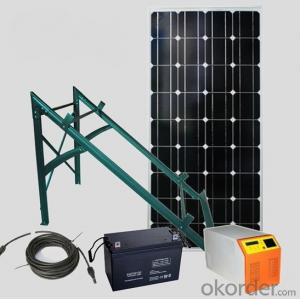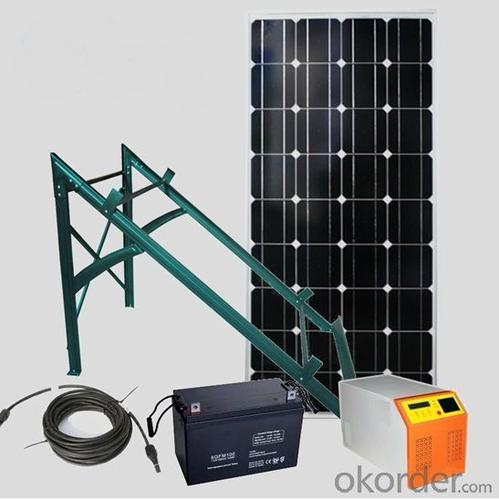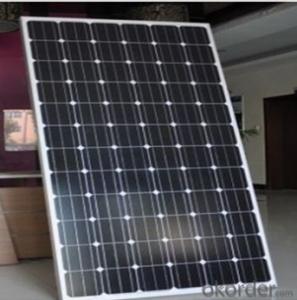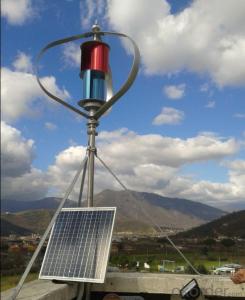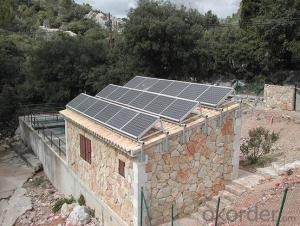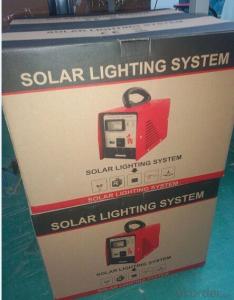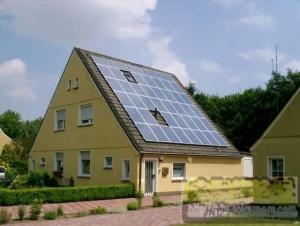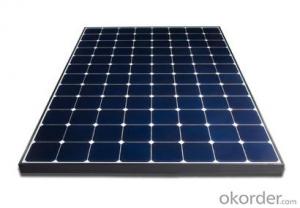Hi Tech Solar Energy Systems - High Efficiency Off Grid Solar Systems with CE TUV Rohs Approved
- Loading Port:
- Shanghai
- Payment Terms:
- TT or LC
- Min Order Qty:
- 300 watt
- Supply Capability:
- 200000 watt/month
OKorder Service Pledge
OKorder Financial Service
You Might Also Like
| Quick Details | |||||
| Specification: | Normal | Application: | Home | Output Voltage (V): | AC110V/220V |
| Load Power (W): | 1000W | Solar Power (W): | 1000W | Work Time (h): | 24 hours |
| Certifications: | CE TUV RoHS | Cables: | 50m | Solar Panel Rack: | 1 set |
| Battery Rated Voltage: | 24V | Inverter output: | AC220V±5% | Grid Input Voltage: | AC165-275V |
| Rated DC Voltage: | 24V | Solar Input Max Voltage: | DC42V | Rated Ouput Power: | 1000W |
| Solar Panel Type: | Polycrystalline or monocrystalline silicon PV module | ||||
| solar system Specifications: | |||||
| Ref No. | OFF-SGHP-1000W | ||||
| System Basic Information | Solar Panel Rated Output Power: 1000W | ||||
| Solar Power for Daily Consumption: 4000WH | |||||
| Allowable Max Loads Power: 1000W | |||||
| Solar Panel | Crystalline Silicon PV Module solar panel , 250W*4pcs | ||||
| Controller-Inverter | Rated Ouput Power: 1000W | ||||
| Integrator | Rated DC Voltage: 48V | ||||
| Battery Rated Voltage: 48V Can fit the batteries into the box. | |||||
| Battery | 4pcs*12V/120AH per piece | ||||
| Solar Panel Rack | Flat-roof type mounting rack | ||||
| including complete fittings | |||||
| (Other types of racks can be customized as per client's requirement) | |||||
| Cables | 50m | ||||
| Connectors | 1 set | ||||
| Certifications | CE RoHS | ||||
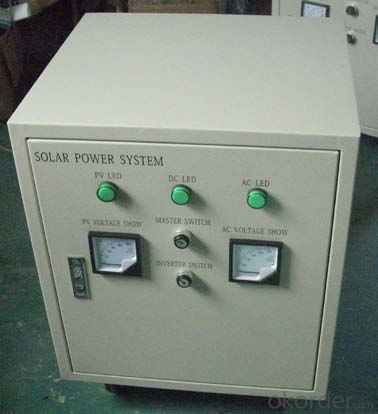
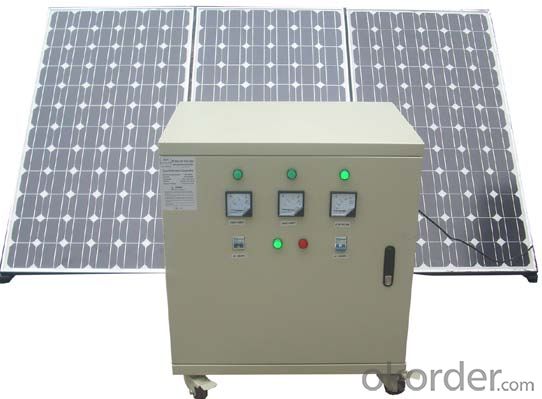
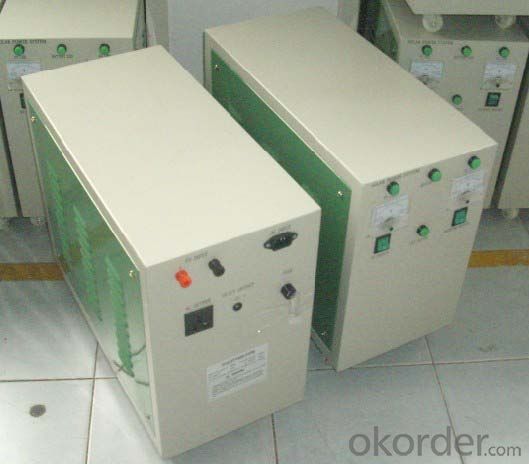
FAQ
We have organized several common questions for our clients,may help you sincerely:
①what price for each watt?
it depends on the quantity, delivery date and payment terms,
②what is your size for each module? can you tell me the parameter of your module?
we have different series of panels in different output, both c-si and a-si. please take the specification sheet for your reference.
③Can you provide the peripheral products of the solar panels, such as the battery, controller, and inverter? If so, can you tell me how do they match each other?
Yes, we can, we have two companies for solar region, one is CNBM International, the other is CNBM engineering Co.
We can provide you not only the solar module but also Solar Cells, the off grid solar system, we can also provide you service with on grid plant.
④What is your warranty system?
Our product performance guarantees for 25 years
• 12 years guarantee for workmanship
• Timeliness of delivery
• Quality Products certified (TÜV, UL, CE, ISO)
⑤How do you pack your products?
We have rich experience on how to pack the panels to make sure the safety on shipment when it arrives at the destination.
⑥ Can you do OEM for us?
Yes, we can.
⑦How long can we receive the product after purchase?
In the purchase of product within three working days, We will arrange the factory delivery as soon as possible. The pecific time of receiving is related to the state and position of customers. Commonly 7 to 10 working days can be served.
- Q: Are there any disadvantages of solar energy systems?
- While solar energy systems have numerous advantages, they also come with a few disadvantages. One of the main drawbacks is the high initial cost of installation. The upfront expenses associated with purchasing and installing solar panels can be quite substantial, making it unaffordable for some individuals or businesses. Additionally, the efficiency of solar panels is affected by external factors such as weather conditions, shading, and the angle of the panels, which can limit their effectiveness in certain locations. Another disadvantage is the intermittent nature of solar power, as it can only be generated during daylight hours and is not available during cloudy or nighttime conditions. This requires the installation of expensive battery systems for energy storage or reliance on the grid during non-generating periods. Lastly, the production of solar panels requires the use of certain materials, some of which are non-renewable and may have negative environmental impacts during extraction and manufacturing processes. Despite these disadvantages, advancements in technology and decreasing costs are continually improving the efficiency and affordability of solar energy systems.
- Q: Can solar energy systems be used in conjunction with other energy sources?
- Yes, solar energy systems can definitely be used in conjunction with other energy sources. This approach is known as hybrid energy systems where solar power is integrated with other sources such as wind, hydro, or fossil fuels. By combining multiple energy sources, the system can provide a more stable and reliable power supply, especially during periods of low solar radiation. Moreover, this integration allows for better utilization of resources and helps to reduce the overall environmental impact by reducing reliance on non-renewable energy sources.
- Q: Can solar energy systems be used in areas with limited access to backup systems?
- Yes, solar energy systems can be used in areas with limited access to backup systems. Solar energy systems are capable of generating electricity even without a backup system, as they harness the power of the sun to produce energy. This makes them a reliable and sustainable solution for areas with limited access to backup systems or unreliable grid infrastructure. However, it's important to consider factors such as system sizing, energy storage options, and energy management strategies to ensure sufficient power availability during periods of limited sunlight or high demand.
- Q: How do solar energy systems affect the electrical grid?
- Solar energy systems can have both positive and negative impacts on the electrical grid. On the positive side, solar energy systems can reduce the demand for electricity from the grid during sunny hours when they are producing energy. This can alleviate stress on the grid and reduce the reliance on fossil fuel-based power plants. Additionally, excess energy generated by solar systems can be exported back to the grid, increasing the overall supply of renewable energy. However, the intermittent nature of solar power can also pose challenges to the electrical grid. Fluctuations in solar energy production can create imbalances in supply and demand, requiring grid operators to manage and balance the system more dynamically. This may necessitate grid upgrades and the development of energy storage solutions to ensure grid stability and reliability.
- Q: Do solar energy systems require regular maintenance?
- Yes, solar energy systems do require regular maintenance. This includes cleaning the solar panels, checking for any damage or debris, and inspecting the overall system performance. Regular maintenance ensures optimal efficiency and longevity of the solar energy system.
- Q: How can solar energy systems reduce electricity bills?
- Solar energy systems can reduce electricity bills by generating electricity from sunlight, which can be used to power homes and businesses. By using solar power, individuals can rely less on traditional electricity sources, resulting in lower energy consumption from the grid. This leads to decreased reliance on utility companies and ultimately reduces electricity bills. Additionally, excess solar energy can be sold back to the grid, further offsetting electricity costs.
- Q: How does the efficiency of solar panels vary across different manufacturers?
- The efficiency of solar panels can vary across different manufacturers due to several factors, including the quality of materials used, the manufacturing process, and the level of research and development invested in improving efficiency. Some manufacturers may have more advanced technologies or use higher-quality materials, resulting in higher efficiencies. Additionally, different manufacturers may prioritize different aspects of solar panel production, such as cost-effectiveness or durability, which can also impact efficiency. Therefore, it is important to compare the efficiency ratings and performance warranties of different manufacturers when considering solar panel options.
- Q: What is net metering and how does it work?
- Net metering is a billing arrangement that allows solar panel owners to receive credit for excess electricity they generate and feed back into the grid. Essentially, it works by measuring the difference between the electricity a solar panel system produces and the electricity it consumes from the grid. If the solar system produces more electricity than it needs, the excess is sent back to the grid, and the owner gets credit for that electricity, which can be used to offset future consumption from the grid. This allows solar panel owners to save money on their electricity bills and encourages the adoption of renewable energy.
- Q: Can solar energy systems be used in powering airports or transportation hubs?
- Yes, solar energy systems can be used to power airports or transportation hubs. In fact, many airports around the world are already using solar energy to offset their energy consumption and reduce their carbon footprint. Solar panels can be installed on rooftops, parking lots, or unused land at airports to generate electricity that can be used to power various operations, such as lighting, heating, cooling, and even charging electric vehicles. This helps airports become more sustainable and reduce their dependence on fossil fuels.
- Q: Can solar energy systems be installed on sports facilities or stadiums?
- Yes, solar energy systems can be installed on sports facilities or stadiums. In fact, many sports facilities around the world have already installed solar panels to generate clean and renewable energy. This not only helps in reducing their carbon footprint but also saves them on energy costs in the long run. Solar energy systems can be easily integrated into the design of sports facilities or stadiums, making it a viable and sustainable option for powering these large-scale venues.
Send your message to us
Hi Tech Solar Energy Systems - High Efficiency Off Grid Solar Systems with CE TUV Rohs Approved
- Loading Port:
- Shanghai
- Payment Terms:
- TT or LC
- Min Order Qty:
- 300 watt
- Supply Capability:
- 200000 watt/month
OKorder Service Pledge
OKorder Financial Service
Similar products
Hot products
Hot Searches
Related keywords
